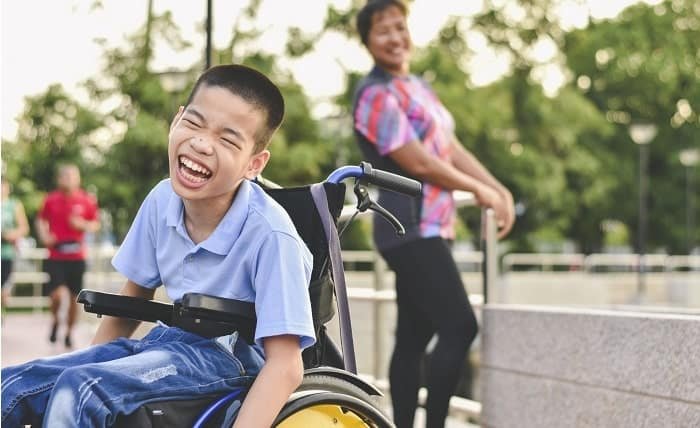Cerebral palsy is a disorder that affects muscle movement and coordination. It is due to damage to the brain, most often before or during birth. Around 31 percent of children diagnosed with cerebral palsy use wheelchairs and cannot walk independently.
Therefore, it is necessary to know the signs and symptoms of cerebral palsy to get a complete diagnosis and begin treatment as soon as possible. While every case is different, some common signs may indicate that someone has cerebral palsy
Here are the most common signs of cerebral palsy. You can take a cerebral palsy quiz if you notice any of these signs in your child or loved one
Delays In Reaching Developmental Milestones
Milestones are the skills that babies are expected to achieve at certain ages, such as turning over, sitting up, and crawling. If your baby is behind in achieving these milestones, it could signify cerebral palsy. Some milestones to check age-wise are:
- By four months, your baby should be able to hold their head up for a short period.
- By six months, your baby should be able to sit with support.
- Between seven and nine months, your baby should start crawling or scooting around on their bottom.
If you’re concerned about your child’s development, talk to your pediatrician. They can refer you to a developmental specialist or conduct a cerebral palsy quiz to rule out other conditions. These quizzes are a set of questions that checks your knowledge on the topic and determines the severity of the health condition.
Weakness Or Stiffness In Arms And Legs
Stiffness in arms and legs can occur due to various reasons
- Tight muscles
- Inflexible joints
- Poor range of motion
These issues happen due to changes in the brain and can be a sign of cerebral palsy. It can make it difficult for your child to move around and participate in activities. If your child is showing such symptoms, it is essential to consult with a doctor.
Uncoordinated Movement, Problems With Balance, And Poor Hand-Eye Coordination
Do you see your child struggling to keep up with other kids their age when running or climbing? Do they seem uncoordinated and have trouble with tasks requiring precise movements, like holding a pencil or scissors? These are common signs of cerebral palsy
When a kid has CP, the brain damage that causes the condition also affects the cerebellum, the part of the brain that monitors muscle movement and coordination. Kids with this condition often have trouble with tasks that require precise movements, like writing or scissors. They may also have problems with balance and walking.
Slurred Speech Or Difficulty Speaking
Communication is the fourth milestone your child should reach. By 18 months, most babies can say a few words. By the time they turn two years old, they should be able to put two words together, such as “more milk” or “I want the ball.”
If a child has difficulty saying words or sounds, it could signify cerebral palsy. Talk to your doctor if you are concerned about your child’s speech development.
Problems Swallowing Or Eating
When a child has CP, their muscles may be weak or tight. It can make it challenging to swallow or eat. If your child has trouble eating, they may:
- Choke on their food
- Drool
- Have trouble chewing
- Have a hard time moving food from the front of their mouth to the back
- Prefer soft foods
- Gag easily
- Get tired when eating
If your child is having trouble eating, talk to their doctor. They may need to see a speech therapist or occupational therapist. These therapists can help your child learn new ways to eat.
Eyelid Drooping Or Misaligned Eyes
When a child has CP, the muscles around their eyes may be weak. It can cause the eyelids to droop or the eyes to look misaligned. If you notice that your child’s eyes seem to be pointing in different directions, it is essential to mention it to their doctor
It happens because the muscles that control the movement of the eyes are affected in children with CP. The problem can be mild, and a child may only have difficulty moving their eyes from one side to another. In severe cases, however, a child may not be able to move their eyes.
Poor Sense Of Smell Or Taste
The brain controls the sense of smell and taste. If your child has cerebral palsy, they may have a poor sense of smell or taste.
Some kids with cerebral palsy may not be able to smell at all. Others may be able to smell but not taste. It can lead to problems with eating and nutrition. Kids may not be able to tell if food is spoiled or not. They may also have trouble knowing when they are full.
Conclusion
CP is a condition that requires lifelong care and management. There is no cure, but with the proper treatment and support, people with CP can lead happier lives. If you think your child has this health condition, talk to your doctor.







